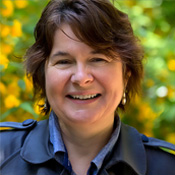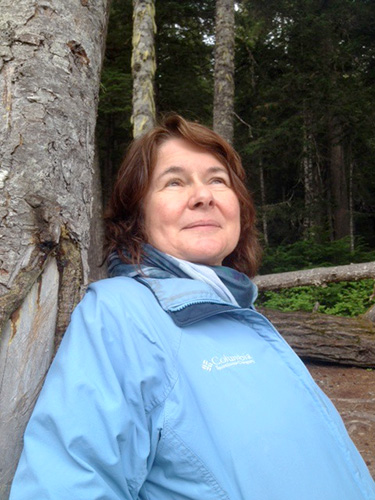Preparing for Retirement
Like most life changing events the more effort you put into planning for your retirement the more successful it is likely to be.
Being in the TREK era the event was called “Trek to a Secure Retirement” and it focused on the psychological implications of, and planning needed for, retirement alongside the financial. This meant that, yes, it was the perfect conversation starter for my husband and me to consider what our life would look like when I was still in high energy work mode and he had transitioned into a more relaxed, "what would I like to do today" retirement mode. And now, almost ten years later, as I prepare for my own retirement next year, I am finding the information provided in the 100 page participants binder to be a great scaffold for planning my own retirement. Like most life changing events the more effort you put into planning for your retirement the more successful it is likely to be. With this in mind, the workshop led us through exercises that had us ponder Life Balance (it is no longer a work life balance when you are retired!), Finances and Health in terms of retirement.
The goal is to apply this luxurious new concept of time to new activities.
The two-sided coin of Life Balance is time and activities. While your work life comes down on the activities side with you wishing for more time, retirement offers more time with the diminution of (work based) activities. The goal is to apply this luxurious new concept of time to new activities. The workshop suggestions were to identify your sources of satisfaction, both personal and work related, using ‘I like’ statements, such as, I like … being up to date and well informed, getting things organised, teamwork, teaching, writing, research, learning, public speaking, renovating, fixing things, helping people, chairing committees, reading manuscripts, etc. With the list in hand we were invited to think of ways in which we could satisfy these sources of satisfaction with activities in retirement. Some of these activities may be "close to home" such as relieving colleagues of teaching duties from time to time or taking a larger role in mentoring students or peers or continuing manuscript reviews for professional journals and offering more editorial support. Others channels may take some sleuthing to find, such as becoming a more active member of your local/national professional organisation, or other organisation whose work you want to support, in taking on committee/mentoring/policy writing/outreach work; and yet others may take inventiveness, such as researching the history of your field/specialty/department for publication or designing new courses for one of the many online companies that have emerged. In this way, some of your retirement activities may be a continuation of activities in which you already engage, while others may be activities set aside during your work life until you had more time. Yet others may be totally new activities that you have been incubating thoughts about over the years.
In talking recently with a friend of mine about my retirement plans he mentioned a retired physician friend of his who wanted to retain some connection with people and their stories, wanted to be out of the house a few days a week, and wanted to be out on the water more – he now works as a part time skipper on the Aqua bus! Meanwhile a scientist friend of mine who loved sailing when he lived on the coast but ended up moving to the University of Saskatchewan for work 30 years ago has begun researching not only the yacht he wants to sail but the yacht he wants to build when he moves back to the coast in retirement.
In my case, having exercised the left—the analytical, logical—side of my brain for most of my life to date, I have begun to explore activities that open up the right—the more creative—side of my brain. Having loved English (even more than science!) when at school I have started taking courses in non-fiction creative writing and have begun a daily writing practice that I can’t wait to spend more time on in retirement.
After considering the question of how to spend one’s time in retirement the next big question is how to fund one’s daily living when such living does not involve generating an income! In addition to the automatic invitation to a Retirement Planning workshop, that I received, there is a separate invitation to a more focused Pension Planning seminar session as one approaches their retirement age. It focuses specifically on understanding the UBC pension plan and one’s financial picture in retirement, including a personalised assessment of your pension savings to date and the projected pay out of these savings should you retire at your natural retirement age of 65. I would highly recommend accepting the email invitation to attend one of these sessions.
As I understand it you have three potential sources of income during retirement: the state-based pension, CPP, and old age security, OAS; your UBC pension; and, retirement investments, such as RRSPs. All of these require decisions to be made on your part regarding timing in addition to which, the UBC pension plan needs decisions to be made about how to invest and withdraw the funds throughout your retirement life. The bottom line, and the biggest take home message from the Pension Planning session, is the necessity of engaging a Financial Planner to assist you in making (the calculations needed to make) these decisions.
I have learnt so much about money (beyond the spend/save duality that was all I knew) that I wish I had engaged with a Financial Planner much earlier in my life.
And so, I set off down that road! I interviewed a few Financial Planners, to get the lay of the land, so to speak, and learnt the difference between financial planners who are investment specialists and financial planners who focus solely on planning. Both help you to assess, and adequately plan for, your financial needs during retirement. In addition, the investment specialist advises you on how to invest your retirement monies under their management, charging you an ongoing percentage (of your investment and its earnings) for doing so. The financial planner, on the other hand, advises you on where and how to invest, and withdraw, your retirement monies, without necessarily taking on that investment themselves, and charges an upfront fee for helping you in planning your finances. I chose the latter and after a number of meetings I have learnt so much about money (beyond the spend/save duality that was all I knew) that I wish I had engaged with a Financial Planner much earlier in my life. In fact, I have engaged his services for both of my daughters (who are in their twenties) to allow them to start their working lives with a much more solid understanding of financial planning.
And so to the third major consideration in retirement: one’s health. Loaded onto the dice that your Financial Planner helps you to play with in planning your retirement income is the number of years/decades that you might yet live. While your genetic inheritance, and your lifestyle to date, plays into this, how you take care of your health—physical, mental and emotional—during your retirement years greatly influences your longevity.
In contemplation of this, I decided to seek out an exercise regimen that I could establish ahead of retiring that would carry me through into retirement. Having tried fitness training, yoga, Zumba and power walking, I finally settled on swimming and have been swimming daily at the YWCA downtown five mornings a week for the last year. Apart from the fact that I have always loved being in the water, swimming first thing in the morning has allowed me to establish an enjoyable exercise routine that gets me out of bed, and out of the house—an important consideration during retirement. I like the way a retired friend of mine put it when I asked her how she stays disciplined about her two-hour morning walk. She explained how she sees her exercise regimen as her primary retirement “work” given the key role it plays in her health. And, just as she wouldn’t have asked herself if she should get up and go to work on a rainy day, or after a bad night’s sleep, neither does she ask herself that question now with regard to her exercise routine!



